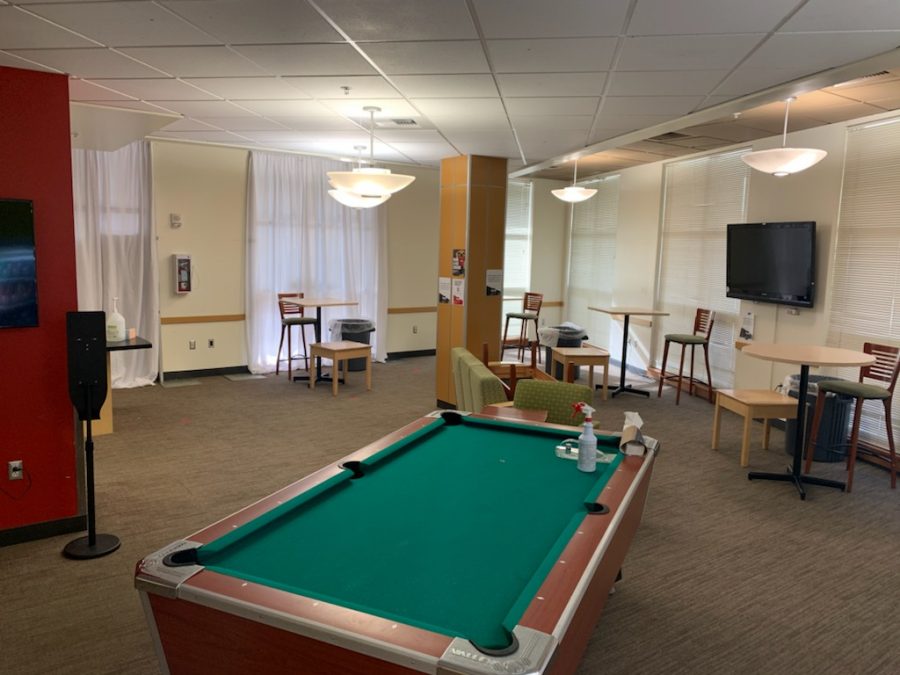Wendell Hill Hall B sees ‘concerning’ increase in COVID-19 cases
October 26, 2020
After a total of 14 students tested positive for COVID-19 in Wendell Hill Hall B, CWU has conducted a second round of testing to see if any additional residents have COVID-19.
The university first announced on Sunday, Oct. 18 that six residents of the hall had the virus. After testing every resident, an additional eight cases of COVID-19 were confirmed.
Dean of Student Success Gregg Heinselman said the university first noticed a trend in positive cases at Wendell Hill Hall B during the middle of the week before the Oct. 18 announcement . At that point, CWU had been notified by the county that three students in Wendell Hill Hall B had tested positive for COVID-19.
While Kittitas County has about a 1% spread rate among its residents, three positive tests in Wendell Hill Hall B meant there was a 2% spread rate at the time.
“Any time we see a particular living community or a population of students that is greater than that 1%, we start looking at the trend lines associated with the individuals who have tested positive,” Heinselman said.
While CWU’s COVID-19 task force considered implementing “surveillance testing” for residents of the hall on Friday, Oct. 16, CWU received a notification from Kittitas County that an additional three students in the hall had tested positive. That meant a total of six residents of the hall at that time had tested positive for COVID-19.
“That became concerning,” Heinselman said.
The decision was made to test every student in Wendell Hill Hall B last week “to understand what percentage of a spread we had through that living community,” Heinselman said, and residents were notified on Monday, Oct. 19 of the six positive tests. In total, CWU tested 160 students as well as staff in the residence hall.
The surveillance testing revealed an additional eight students who had COVID-19 as well as two inconclusive tests. The students whose tests were inconclusive were retested for COVID-19, and Heinselman said in a follow up email on Monday Oct. 26 that he was unable to comment on the status of their test results.
Heinselman noted that the number of active cases the university is tracking has dropped from 53 cases on Friday, Oct. 23 to 33 cases on Monday, Oct. 26.
The additional positive tests from last week’s surveillance testing mean that in total 14 of the 160 students in Wendell Hill Hall B have tested positive for COVID-19, as well as the two additional students whose original tests were inconclusive.
“It became clear to us that we had about a 10% spread rate in that residence hall, which is substantially higher than the county,” Heinselman said. “We’ve isolated all the students that have been positive, so we feel very good about that.”
Residents in the hall were again tested for coronavirus on Monday, Oct. 26. Test results typically take 24 to 48 hours, though they can take as long as four days. The results from the second round of surveillance testing were not available at the time of publication.
Heinselman said the second round of surveillance testing may show residents who are positive for COVID-19 but did not test positive during the first round of testing.
During both rounds of testing, students are self-isolated in their rooms until their test results return. While results are pending, residents are not permitted to attend any in-person classes, and meals are delivered through the CWU Dining meal delivery service.
Those who test negative are not required to continue to self-isolate, while those who test positive are moved to a different facility on campus unless their living space is single occupancy with a private bathroom.
Heinselman said the students who have tested positive likely “haven’t been as compliant with those protocols that we’ve put in place as we wish they would be,” and reiterated the importance for students to wear a mask, stay socially distant and to continue to wash their hands.
“It’s that continued rhythm of reinforcing those types of behaviors which will keep people healthy,” Heinselman said.

